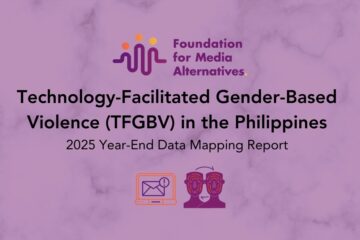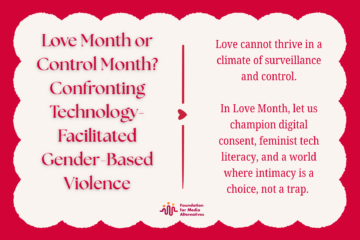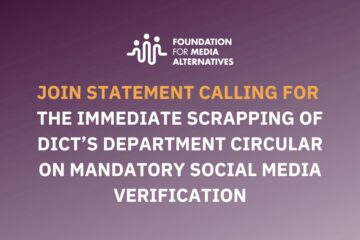A Statement of Concern
Dutertismo Should Address – Not Contribute to – the Climate of Impunity
Preventing Rhetoric from Becoming Reality in Respecting Rights
Though it is still two weeks before President-elect Rodrigo Duterte is formally proclaimed as the country’s next Chief Executive and Commander-in-Chief, his electoral victory has been apparent early on, just a few days after the close of the May 9th polls.
His victory is unprecedented in many ways, and there will be another time to asses his landslide victory for its substance as well as symbolic value. But for now, it may be time to investigate his recent rhetoric and how it relates to how this hints of an emergent reality where human rights may be under threat.
It could be argued that any words and actions emanating from Mr. Duterte as presumptive President are not yet technically “official” statements. However given the nature of his eventual office, and the gravity of the themes being addressed, his words even now are – and should be – received as signals of what is to become. Using an IT-based metaphor, his past statements hint at a sort of “source code” for the “operating system” of his incoming Administration. Supporters of the President-elect assume just as much: “This is who Duterte is, and what you see is what you get.”
Many citizens of goodwill do assume that an initial public familiarization period with any new leader-especially one as unorthodox as him – deserves some time. Surely, some leeway for a “honeymoon period” is expected between the President-elect and the nation, even for skeptics or non-supporters who have always been uncomfortable with his alleged link to local death squads and summary executions in Davao.
But is it disturbing to hear some of Mr. Duterte’s words before and after the election, particularly even for those prepared to critically engage his incoming administration based on principle, insofar as they refer to and impact on human rights. Among them:
- His provocative statements and actions, as well as his disrespectful attitudes towards women, particularly (and shockingly) even against victims of gender violence [1];
- His inciteful exhortations endorsing extra-judicial killings of suspected drug dealers and other criminals, and the setting up for rich bounties to entice citizens into this deadly endeavor [2];
- His impatience with (non-Davao-based) media workers and his apparent lack of appreciation as to their role in democratic discourse, and most disturbingly his similar endorsement of the use of deadly force against journalists who were perceived to be “corrupt”, in a nation already considered one of the deadliest countries for journalist [3];
However he or his supporters try to minimize or massage the disturbing messages of this Dutertismo discourse, these statements are on public record and can be easily parsed as to their context and actual intent. Even if the nation is still in a political “honeymoon period” with him, no partner in a marriage has to tolerate an attack on one’s rights and dignity, “honeymoon period” or not.
A number of Mr. Duterte’s progressive minded-supporters have requested for a broader mind in judging the President-elect, and practically appeal to the people to just disregard the rhetoric and just await the reality which they say will be much more benign. Maybe so. But while the politics of language under Mr. Duterte is still being decoded, we are informed by long experience in how rhetoric does shape eventual reality, oftentimes in ways that are not benign.
On the rhetoric alone, there can be no denying that these proposed measures violate accepted standards of due process, effectively diminish the rule of law, and become a State-sponsored license to solve complex societal problems at the end of the barrel of a gun. The questionable pseudo-vigilantism being encouraged is precisely what birthed the infamous Davao Death Squads, a “solution” which effectively incites more violence and murder, and exacerbates the culture of impunity that has allowed extra-judicial killings to continue in our benighted country. For sure, these statements and any violence they incite are against universally recognized international human rights standards.
Some belittle Mr. Duterte’s words as mere expressions of braggadocio, or just humorous hyperbole, or the use of street lingo of the masses that shock only the elite. But how really does it play out in real life? Even now, media reports indicate a rise in reports of killings and deaths in shootouts of many “suspected criminals”, with speculation rife that the Dutertismo call to arms gas trickled down to local administrations and law enforcement (and another non-State armed elements?), emboldering those who hold local state coercive powers. With unfriendly media now in the crosshairs, will people therefore be less inclined to level criticism at the new Administration?
Mr. Duterte’s attacks on media and others critical of him – even as they are ironically framed as an assertion of his own “freedom of expression” – on the contrary result in the suppression of this freedom, serving to foster a “chilling effect” on dissent and contrarian opinions, lest they be called out as expression of “stupidity” or “idiocy”, or worse, corruption-tainted hatchet job paid by enemies of his government and therefore worthy of violent reprisal.
The Foundation for Media Alternatives (FMA) therefore adds its voice to the few who, during this “honeymoon phase”, have sought to address these threats and counter any such chilling effects by issuing appropriate statements of concern and condemnation (such as various journalist organizations, women’s groups, and international free expression advocates) about the rhetoric which may construct reality.
In response to these contrarian voices, it is unfortunate that President-elect’s immediate reactions have been even more confrontational, strident, and even condescending and insulting. Either as a part of a deliberate strategy, or merely an expression of the Mayor’s well-known candor and honesty, Mr. Duterte has managed to disrespect and even malign such venerable institutions such as the Commission on Human Rights (CHR), the Catholic Church, and even the United Nations.
Lest these attacks be deemed justifiable due to acknowledged flaws within these institutions, we must point out how these attacks only serve to weaken the democratic ecosystem which exists in our country. We must remember that part of the institutional roles of such institutions – free media, independent churches, national human rights institutions, and apex intergovernmental bodies like the UN – is precisely to prevent abuse of States and their instrumentalists.
Naming and shaming these organizations for perceived slights betrays a lack of appreciation of their institutional roles in a democracy,; vilifying them or their representatives in effect seeks to de-legitimize them in the eyes of the public. This ultimately will lead to a weakening of the democratic system of checks and balance that prevents overconcentration of power by the State.
The President-elect recent warnings to Congress not to initiate any legislative inquiries on his anti-crime initiatives can also be considered as another frontal attack on an institutional pillar of democracy, which again serves to undermine the balance of power between and among co-equal branches of government. Is the President-elect above any democratic limits on Executive power?
Dutertismo came to power democratically on the will of vast numbers of Filipinos fed up with a perceived old and uncaring order, and traditional politician-based responses to age-old social exclusions. Hence we believe that President-elect Duterte has to be given a chance to make Dutertismo work in such a complex political, economic and social environment far from the more simple parameters of local governance. If this requires the President-elect utilizing a more frank, no-nonsense, and take-no-prisoners discourse that apparently resonates with a large section of the citizenry which has felt historically excluded, then so be it. It may eventually deserve our political support, if it delivers its promise of genuine change.
But when this discourse and political style crosses a line that serves to diminish the human rights which the Filipino people have fought for decades to defend, or impugns the legitimacy of democratic institutions tasked to defend these rights, or belittles the rights and freedoms of any Filipino, it is incumbent in all Filipinos to speak up.
On the question of human rights therefore, Dutertismo will be ultimately judged on whether it will address the culture of impunity that taints this country, or contribute to it. Even in this honeymoon period” – or at any time manifests itself actually – any violent rhetoric that negatively impacts on rights must immediately be responded to and countered, lest it evolve into political reality.
We urge the incoming President and his administration to refrain from inciting any more violence, and to discontinue any lines of attack on legitimate and democratic institutions, for what is at stake is beyond just his a vowed personal right to free expression. He – as de facto the most powerful person in the country now – must be circumspect based on his mandate to defend the very institutions that has allowed his rise to power.
First they came for the Socialists, and I did not speak out – because I was not a Socialist. Then they came for the Trade Unionist, and I did not speak out – because I was not a Trade Unionist.
Then they came for the Jews, and I did not speak out – because I was not a Jew.
And then they came for me – and there was no one left to speak for me.
Martin Niemöller
German anti-Nazi theologian and Lutheran pastor
Reference:
[1] Mariz Umali Case; 1986 Australian Rape Victim (Australian missionary Jacqueline Hamill); Duterte on women’s rights complaint: Go to hell; Women’s rights groups file complaint vs. Duterte; PWD groups file complaint against Duterte
[2] Duterte and the Davao Death Squad; 5 dead in Philippines as Duterte-inspired street executions start; The summary execution after the PH Election; Vigilante killings alarm CHR, church execs; Duterte warns cops involved in drug trade: I’ll kill you; Rodrigo Duterte: Shoot a drug dealer, get a medal; Philippines’ Rodrigo Duterte: Public ‘can kill’ criminals
[3] Media corruption root cause of journalists’ killings; Duterte, the Philippines’ #NoFilter president, is no joke for journalists; U.N. special rapporteurs condemn Duterte’s stand on assassination of Journalist
###
For inquiries, please contact FMA at: info AT fma dot ph
Attention: A. G. Alegre



0 Comments